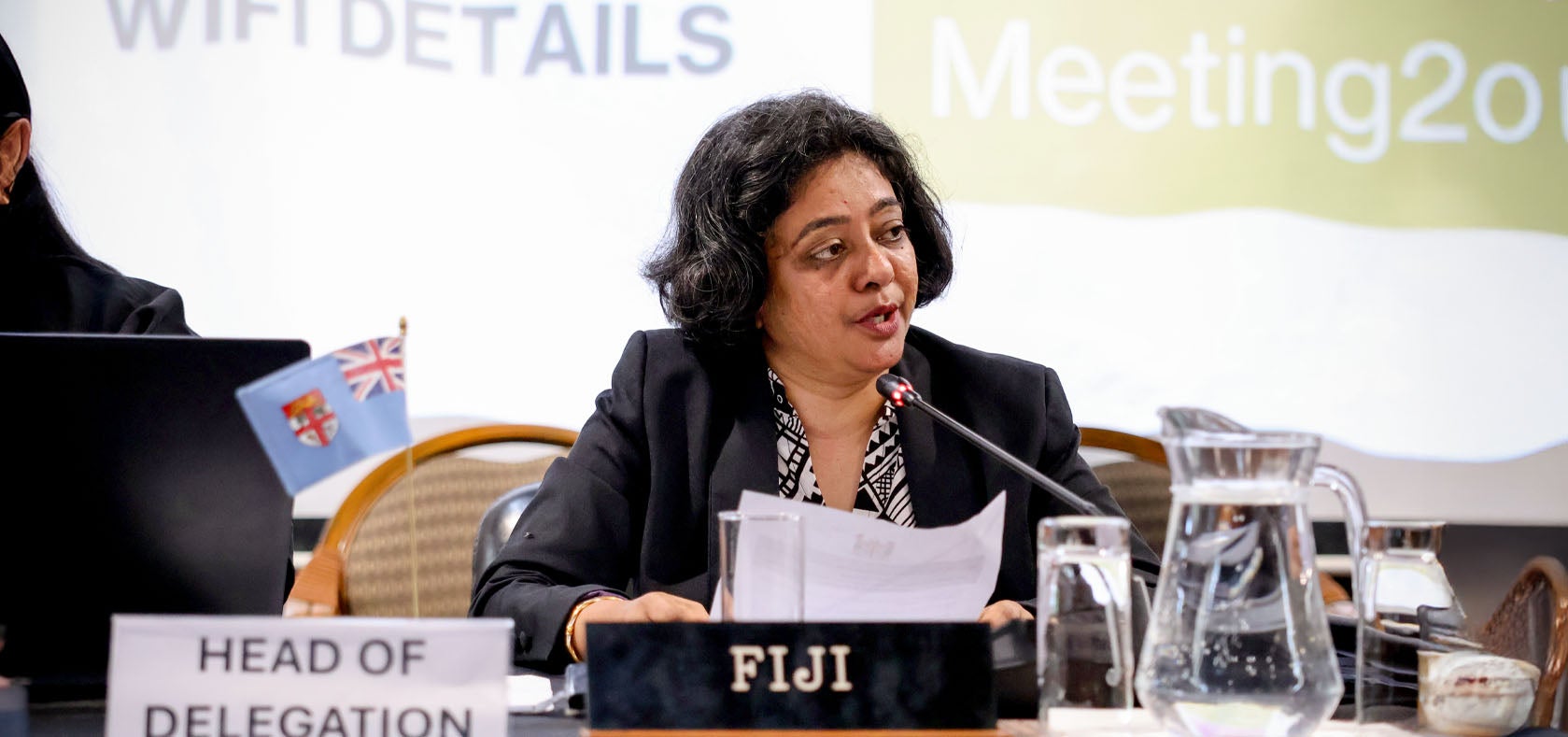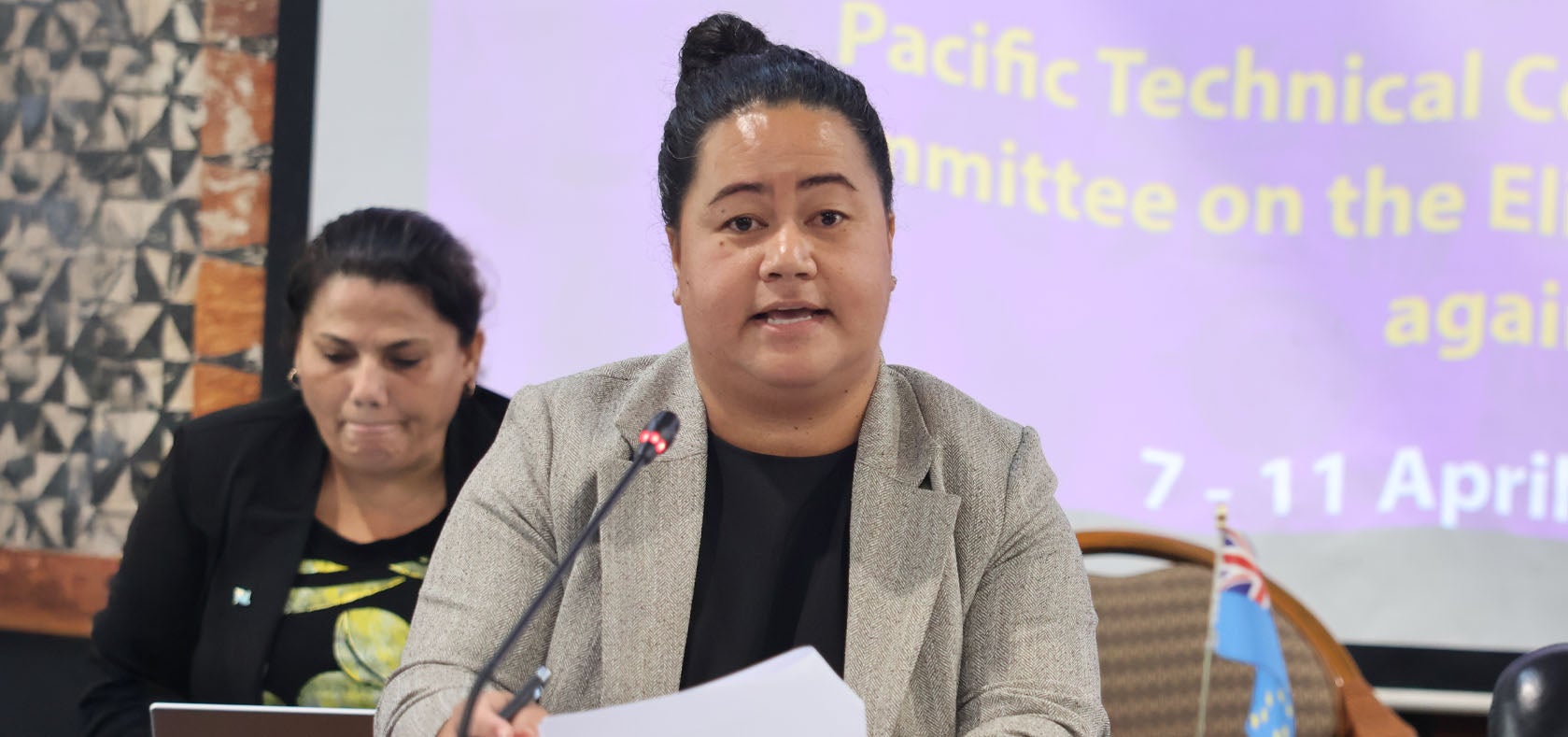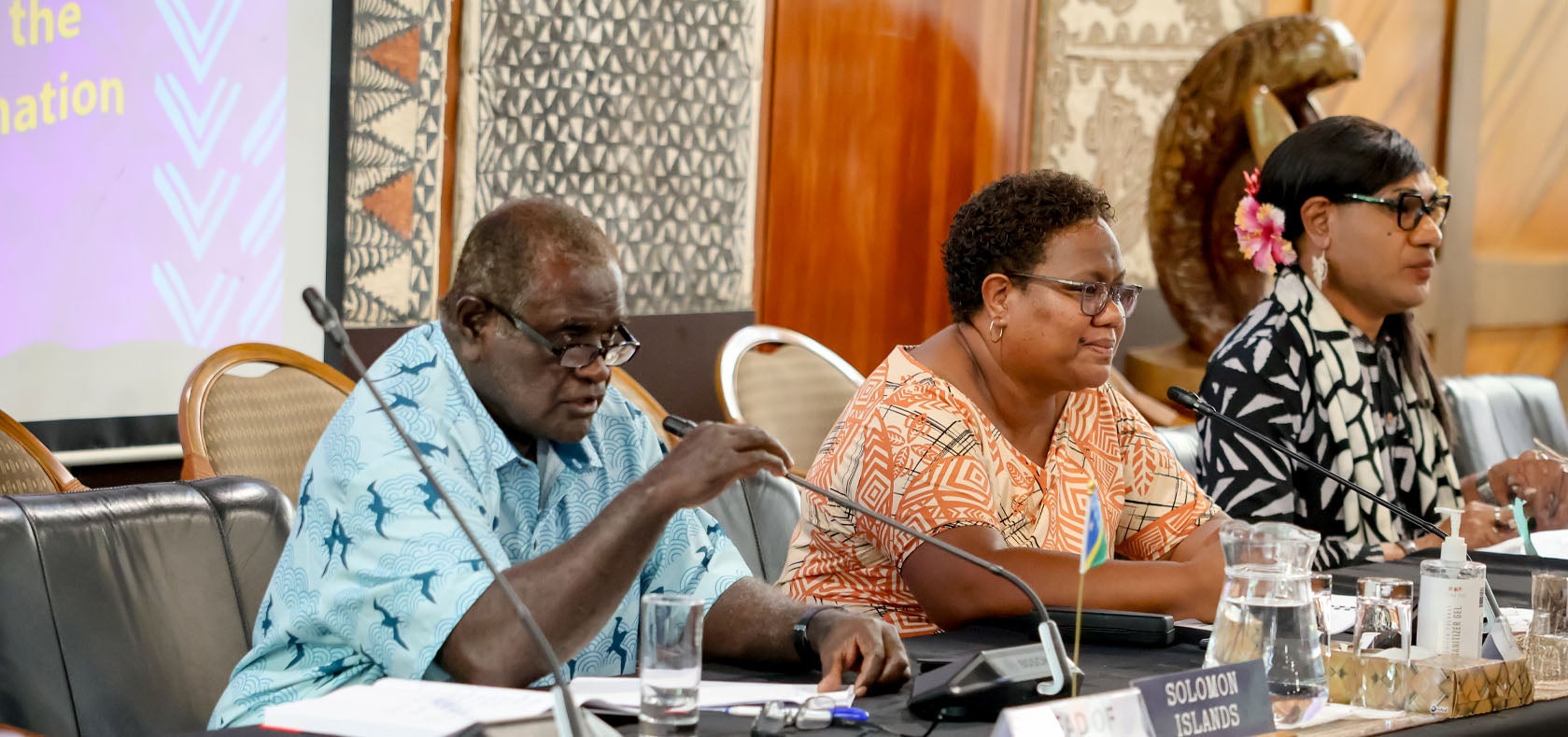Pacific Governments Strengthen National Reporting Through Mock CEDAW Sessions Ahead of this week’s historic Technical Cooperation Session
With the CEDAW Committee convening in the Pacific for the first time, the governments of Fiji, Tuvalu, and Solomon Islands used last week’s simulations to prepare for critical national dialogues.
Date:
As the CEDAW Committee meets in Suva this week, Pacific governments are stepping up—better prepared, more coordinated, and fully engaged in advancing gender equality. In the lead-up, mock sessions held last week gave Fiji, Tuvalu, and Solomon Islands a powerful opportunity to strengthen their national reporting and refine their engagement.
The Pacific Technical Cooperation Session, running from 7–11 April in Suva, marks a historic milestone: it’s the first time the CEDAW Committee is in the region. With 14 Pacific countries having ratified the Convention, this session brings direct engagement, collaboration, and accountability to the forefront.

In preparation, mock sessions were held last week for the three countries under review—Fiji, Tuvalu, and Solomon Islands. Facilitated by the Pacific Community (SPC), UN Women, OHCHR Pacific, and other partners, these simulations allowed government delegations to rehearse their national statements, anticipate questions, and align across ministries.
“The mock session is an excellent opportunity indeed for us not only to deepen our understanding of the CEDAW process, but also to practically engage with the mechanisms that hold governments accountable for the commitments of the rights of women,” said the Honourable Sashi Kiran, Fiji’s Minister for Women, Children and Social Protection.

Tuvalu’s delegation also saw strong value in the process.
“Having this mock session has given us the enabling environment to anticipate our country exchange next week. I am very proud of my delegation... It’s very important for us to tell our story to the Committee members,” said Mrs. Laingane Italeli Talia, Tuvalu’s Attorney General and Head of Delegation.
“The rights of women are not just women’s rights—they are human rights. Together, we can create a more just and equitable Pacific,” added Mr. Sokotia Kulene, Assistant Secretary, Office of the Prime Minister and Delegate from Tuvalu.
In Solomon Islands, the mock session helped build a more inclusive, cross-ministerial response.

“Most of our team are new to the CEDAW process. The mock session helped us understand the kinds of questions we’ll face and where we need to improve,” said Cedric Alependava, Permanent Secretary of the Solomon Islands Ministry of Women, Youth, Children and Family Affairs.
“We’re working across ministries now to strengthen our responses and deliver a more comprehensive national statement. This has been a very constructive experience for us.”
Looking ahead, Alependava noted the importance of the Committee’s recommendations in guiding long-term efforts.
“They will help us focus our collaboration with civil society, NGOs, and faith-based groups to improve implementation across the CEDAW articles.”
With the CEDAW session now underway in Suva, the groundwork laid last week is already bearing fruit. These mock sessions have not only strengthened national preparedness—they’ve set a new regional benchmark for collaboration, accountability, and commitment to women’s rights.
The Pacific Technical Cooperation Session of the CEDAW Committee is hosted by the Government of Fiji and jointly organised by the CEDAW Committee, the Pacific Community (SPC), the Office of the High Commissioner for Human Rights (OHCHR), UN Women, the Pacific Islands Forum (PIF), and The University of the South Pacific (USP). SPC’s technical component and support for the session is made possible with funding from the Australian Government through the Pacific Women Lead at SPC.